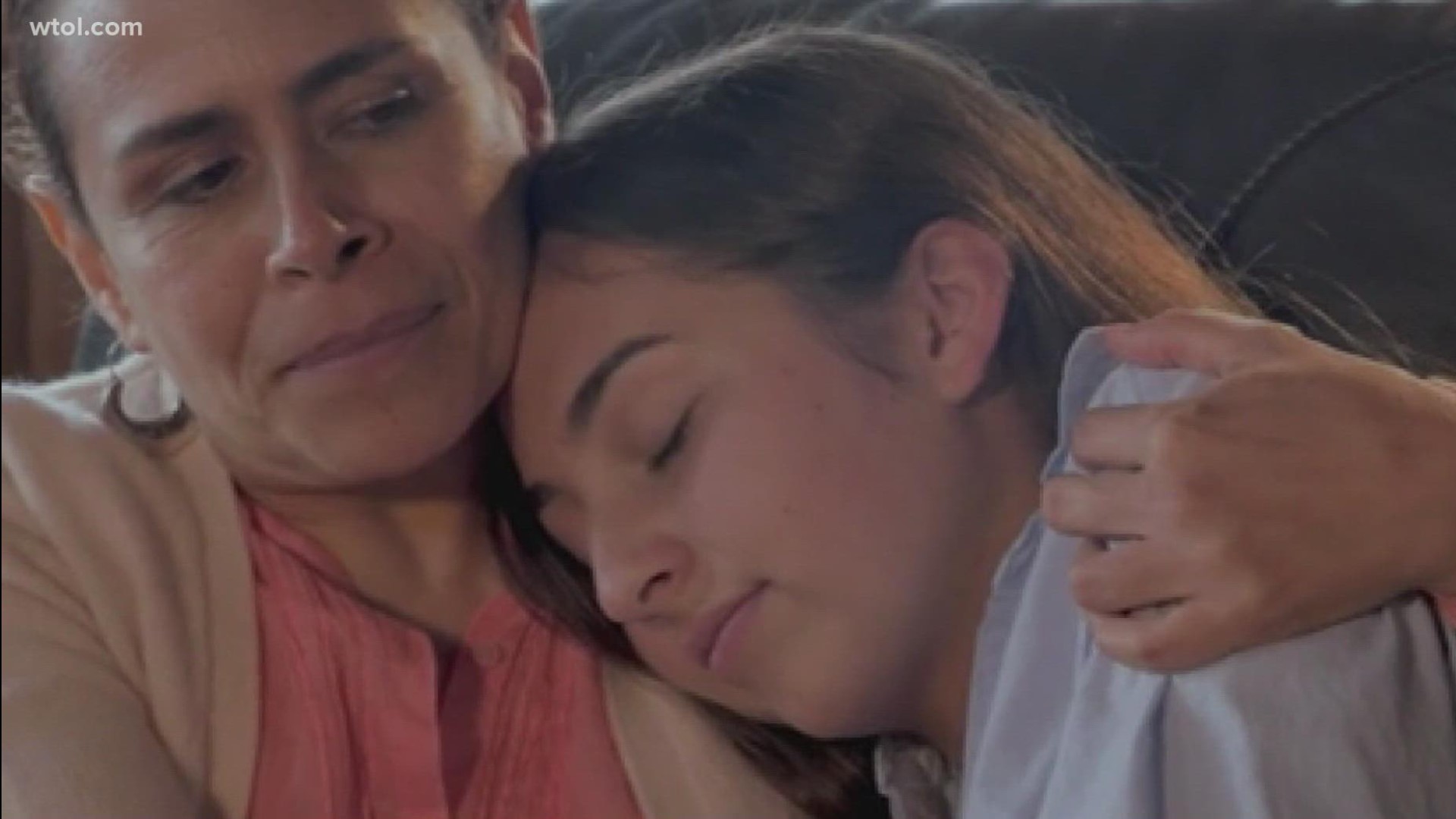TOLEDO, Ohio — The holiday season is meant to be filled with cheer, but not everyone is excited this time of year.
Between the COVID-19 pandemic, worker shortages, inflation and adjusting to a new normal, those experiencing loss and grief may be in a worse place mentally than usual.
It's not just adults that feel the weight of loss - children could be having a difficult time as well.
Good Grief of Northwest Ohio Managing Director Dorothy Mockensturm says the holidays aren't going to be the same, especially when it comes to heavy emotions like grief.
"Acknowledge that it's going to be different and it's going to be tough," Mockensturm said.
Good Grief is a non-profit organization that specializes in supporting children and teens dealing with grief. The main office, along with each counseling office and breakout area, is filled with supportive messages.
Mockensturm says it's intentional because grieving children have just as hard a time as adults do, so visual reminders help. A child's grief, whether the loss happened recently or years ago, is more complex in its manifestation because it can come in waves over time, since grief is so intense.
When it comes to adults, Bereavement Counselor Maren Simon, at Hospice of Northwest Ohio, said the best thing to do is allow yourself time to prepare for change.
"What do you need to do? Or what do you want to do? What can give you permission to say, 'No, I'm not gonna do that this year,'" Simon said.
Both experts explained that the holidays are typically filled with gatherings and parties, but you shouldn't feel obligated to go, and it's OK to say no. It's ideal to be honest about what you actually do or don't want to do with family and friends.
If you want to attend a holiday party, then go. But always have an exit plan if things become too much emotionally.
Since some children and teens may lack the vocabulary to express their grief verbally, it's best keep an eye out for any red flags. Mockensturm said teaching them to ignore their feelings is dangerous.
"[There's a] much higher risk of anxiety, depression, substance abuse," Mockensturm said. "Immediately it's difficult to sort of move through life because they haven't been able to process the grief."
She added that unprocessed grief can lead to mental health issues down the line, causing even more problems into adulthood.
Learning positive coping techniques are key and will mean creating a new normal, which isn't a bad thing.
"Let yourself experience joy," Simon said. "Let yourself experience happiness. Grief has no timeline. It's not gonna end in a matter of three months. It's not gonna end in a matter of years. It doesn't end, because as long as you have love for someone, you will have grief for someone."
"But if we can find ways to channel that love to another person or another cause or in another way, it feels a little less heavy," Mockensturm added.
Both agreed that it's best to think about holiday traditions that you want to keep, postpone or just stop doing altogether. Don't forget, whatever you decide is fine because there is no one right way to grieve.
One of the most important things to do is find support and safety as you navigate a life with loss.

